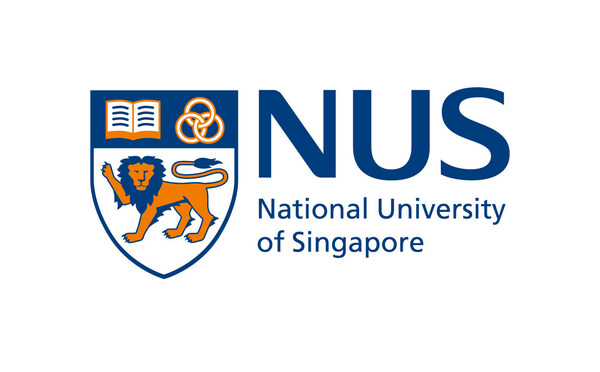 |
- BLOCK71 Nagoya will also be the gateway for Japanese start-ups to Southeast Asia
- NUS partners ENEOS Holdings, Inc. to facilitate bilateral cooperation in growing innovation and enterprise ecosystems in both countries
NAGOYA, Japan, Nov. 1, 2024 /PRNewswire/ -- NUS Enterprise, the entrepreneurial arm of the National University of Singapore (NUS) has launched BLOCK71 Nagoya today, marking its operational opening for start-ups. BLOCK71 Nagoya aims to create a technology-focused ecosystem connecting Japan and Southeast Asia, providing Southeast Asian start-ups with essential support to navigate Japan's cultural and business nuances for successful expansion. At the same time, it will support Japanese start-ups to grow and scale effectively in Southeast Asia.
Nagoya is a key hub for technology start-ups looking to expand into Southeast Asia, backed by Aichi's strength as Japan's manufacturing powerhouse, which is home to leading companies in automotive, aviation, and robotics. These industries provide a strong foundation for technological growth and offer valuable collaboration opportunities with established corporations.
The opening of the centre was graced by His Excellency Hideaki Omura, the Governor of Aichi Prefecture, who was joined by Professor Tan Eng Chye, NUS President; Associate Professor Benjamin Tee, Vice President (Ecosystem Building), NUS Enterprise; Professor Naoshi Sugiyama, Nagoya University President; and Mr Hirotaka Sahashi, STATION Ai Corporation President and CEO.
BLOCK71 in Japan – a bridge between Southeast Asia and Japan
BLOCK71 is a technology-focused ecosystem builder and global connector that catalyses the start-up community. It has established itself as a leading force in global entrepreneurship, with offices spanning across Southeast Asia, the United States of America, China, and now Japan. As NUS' first BLOCK71 location in Japan, the opening of the Nagoya office marks a significant addition to this network, representing a strategic move to promote market entry for Southeast Asian ventures (see Annexe A for background on BLOCK71).
Unlike other BLOCK71 global offices that focus on incubation, BLOCK71 in Japan prioritises market launch activities due to Japan's mature and established start-up landscape. The Japanese offices will provide Japanese start-ups with the resources and networks to expand into Southeast Asia, while enabling Southeast Asian start-ups to establish a foothold in Japan.
Japan's strong tradition of innovation presents immense opportunities for collaboration with Southeast Asia's dynamic start-up ecosystems. BLOCK71 Nagoya will empower Japanese corporations and start-ups by connecting them to a broad network of Southeast Asian start-ups, investors, and industry leaders, fostering partnerships that drive innovative projects and facilitate market expansion. Similarly, Southeast Asian start-ups aiming to enter the Japanese market can benefit from BLOCK71 Nagoya to connect them with key stakeholders in the local innovation ecosystem.
"BLOCK71 Nagoya is not only a launchpad for Southeast Asian start-ups entering Japan, but also a gateway for Japanese start-ups looking to break into the diverse and rapidly growing Southeast Asian markets. By leveraging BLOCK71's vast networks and experience, we aim to provide Japanese entrepreneurs with the tools, insights, and partnerships needed to navigate these emerging economies successfully," said Professor Tan Eng Chye, NUS President.
BLOCK71 Nagoya will prioritise establishing key business milestones, including developing the Proof of Concept (PoC), fundraising, forging contracts, and integrating within BLOCK71's extensive global network and quality start-up pool. Additionally, BLOCK71 in Japan will not only provide physical office spaces within their partners' coworking space in key cities, but also deploy dedicated staff across the country to identify growth opportunities for start-ups by capitalising on Japan's multifaceted market landscape.
Collaboration with ENEOS to enhance innovation
As part of its commitment to driving innovation, NUS Enterprise has established a strategic partnership with ENEOS Holdings, Inc. (ENEOS), one of the largest energy companies in Japan, through a Memorandum of Understanding (MOU) signed on 31 October 2024. The MOU was signed by Professor Tan Eng Chye, NUS President and Mr Toru Naganuma, General Manager, Emerging Business Development Department, ENEOS.
The collaboration aims to enhance venture-building activities for NUS start-ups by providing them with exposure to real-world industry challenges. Together, both organisations will identify promising Southeast Asian start-ups and innovative solutions that can address critical industry issues. Key focus areas include mobility, decarbonisation, the circular economy, and artificial intelligence.
In addition, this partnership enables established corporations like ENEOS to maintain competitiveness through continuous innovation in an ever-evolving global economy. Start-ups, recognised for their agility and creativity, often experiment with cutting-edge technologies and business models that can drive corporate innovation. By partnering with start-ups, ENEOS can respond more swiftly to market changes, diversify its product offerings, and penetrate new markets and customer segments. For NUS start-ups, this partnership opens up opportunities to expand into the Japanese market by addressing real-world challenges posed by ENEOS. Additionally, participating start-ups will gain valuable insights into the operations of traditional Japanese companies, enhancing their understanding of this unique market.
"The partnership between NUS Enterprise and ENEOS Holdings will leverage the strengths of our extensive BLOCK71 ecosystem and network to foster innovation and entrepreneurship. This collaboration connects our start-ups with real-world industry challenges, enhancing their ability to develop solutions that meet the evolving needs of the energy sector. By integrating the capabilities of NUS Enterprise with ENEOS' expertise, we aim to create a vibrant ecosystem where agility and creativity drive impactful advancements. Together, we are committed to nurturing the next generation of Southeast Asian start-ups that will shape the future of sustainable energy and technology," added Professor Tan Eng Chye, NUS President.






